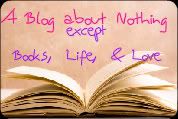Publisher: Harper Colllins, 1978
Pages: 148
Reading Level: Ages 9 to 12 years
Awards: 1979 Newberry Honor Award, 1979 National Book Award
Note: In honor of Banned Book Week, I will be posting daily blog reviews of children’s books that have been challenged or banned.
If I were asked to select my favorite children’s author, I would undoubtedly give Katherine Patterson that honor. From the moment that I first read Bridge to Terabithia, I fell in love with Patterson’s ability to draw her readers in with tales of believable characters, facing challenging situations, and living in diverse settings. Never once in all her stories does she shy away from hard topics which is likely why as the author of realistic fiction for children ages 9 to 12 she has had several books banned or challenged. Her story The Great Gilly Hopkins is no exception and is #21 on the American Library Association’s most banned and challenged book list.
Even after 31 years, Patterson’s story about a tough, hard to manage and hard to love foster child rings amazingly true to life. Eleven year old Galadriel “Gilly” Hopkins has spent the majority of her life in the foster care system. As a result, she has learned that to survive, you must be tough and not let anyone know that you care. The story opens with Gilly being placed in her third home in as many years. Upon arrival at her new “home”, Gilly assesses her new foster mother as a “hippopotamus of a woman” and her foster brother as a “freaky kid”.
Patterson does a remarkable job portraying the emotional challenges faced by children in long-term foster care, as well as the difficulties faced by the adults who care for foster children. Gilly is a child who has learned to manipulate the adults in her environment to behave and react as she wants them to respond. She uses profanity, lies, steals, and bullies others. Through a series of interactions and events, Gilly does experience a certain level of transformation as she learns to care about her foster mother, Trotter, and the timid and shy foster brother, William Ernst, and the elderly, blind African-American neighbor, Mr. Randolph, and her African-American teacher, Ms. Harris.
Though some of the references to Vietnam, and flower children may date the book, the theme of wanting to belong and be loved is timeless. When Gilly finally meets her biological mother, she learns the hard way that her dreams about her mother coming to rescue her and creating a home together will never materialize and that happy and ending do not always go together.
I find it sad that a book which deals with the realities of the life of foster children in such a compassionate manner should be challenged or banned. Those who have challenged it because of its topic, use of profanity, or issues of racism are either in denial or have never worked with children who live this reality on a daily basis. The ability to use this book to help children in similar circumstances far outweigh any of the negatives perceived by those who have cried out against it.
Celebrate Banned Book Week, go read a banned or challenged book!
-Aly
Subscribe to:
Post Comments (Atom)




















No comments:
Post a Comment